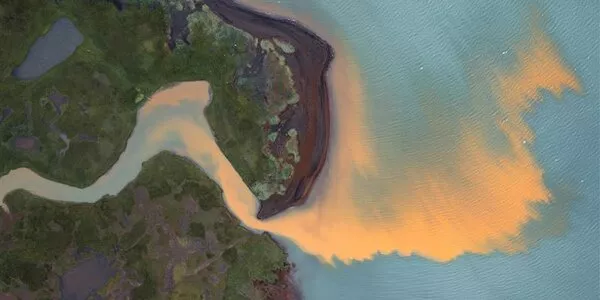
The Covid crisis and the Oceans
From this period of lockdown we may remember the vision of wild animals wandering through the deserted streets of our big cities that had become silent. This great forced breathing offered to the Earth has also greatly benefited the oceans: the halt of ferries, shipping and even fishing has brought a sudden calm over and under the waters: the Venice lagoon has never been so clear and one could discover schools of fish swimming in it, two rorqual whales took a short walk in the creeks of Marseille and a few dolphins ventured into the port of Cagliari in Sardinia.
And at the same time... the production of plastic has taken off again: single-use containers, Plexiglas used as spit barriers... How will we deal with the resulting waste which is highly toxic to the oceans? Underwater, we are starting to collect masks and gloves that our inconsistency is precipitating into the sea! Do we know that 80%(1) of the plastic produced and consumed on land ends up in the oceans? Will a respite of a few weeks hide years of marine pollution? It is estimated that a mask will take about 400 years to decompose in the sea.
This crisis has also highlighted the importance of science and basic research. It is indeed thanks to them that we will find the solution to this pandemic and others that may occur. The oceans are still yet unknown areas, where research has only just penetrated(2). To date, only 240,000 marine species have been described, while scientists estimate their number at between 500,000 and more than 10 million (estimates that do not include the microbial world, where the number of species is estimated to be close to ten billion)(3).
This is the mission of the NGO Tara Océan, which develops high-level ocean science in collaboration with international laboratories of excellence, to explore, understand and anticipate the upheavals linked to climatic and environmental risks.
Thanks to this French foundation recognized as a public utility, we have for example better understood how plankton was essential in the capture of CO2 from the atmosphere by the oceans(3), or that the degradation of waste into micro-particles is already taking place in rivers and that -definitely - the solution for plastic in the oceans is on land, by developing its collection and recycling(5). There is therefore an urgent need to further develop and support research on the marine environment: it will certainly provide information that can help to preserve humanity and, no doubt, our planet as well.
Just as the United Nations and the world community have made the preservation of the oceans one of the 17 sustainable development goals, let's make the seas a common responsibility and also pass on to our children the desire to explore and protect this vital ecosystem.
- - - - - - - - - -
1. Ref: Tara Oceans
2. The HMS Challenger expedition of 1870 is considered the first scientific expedition of the oceans: it led to the discovery that, contrary to what was thought, there were life forms in the abyss.
3. Source IFREMER: https://innovz.ifremer.fr/Expertise/Eau-Biodiversite/Biodiversite-Marine (French only)
4. For more information: https://oceans.taraexpeditions.org/m/science/les-resultats/plankton-networks-driving-carbon-export-in-the-oligotrophic-ocean/
5. For more information: https://oceans.taraexpeditions.org/m/science/les-actualites/cp-retour-missionmicroplastiques2019/





